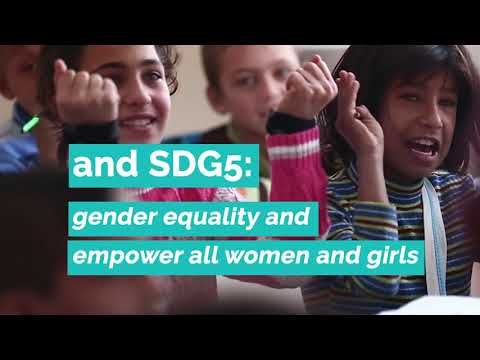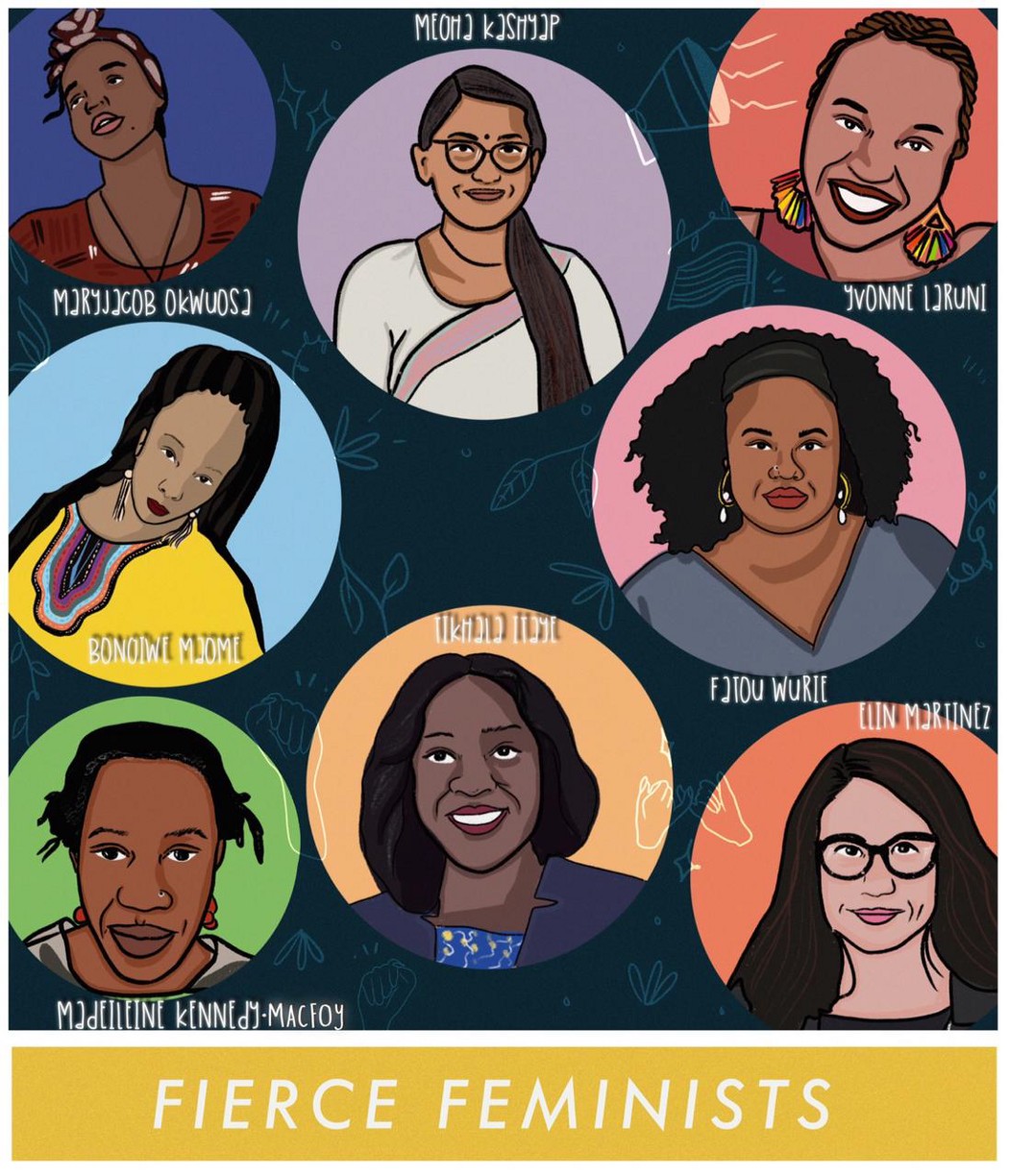Last month activists, Sodfa, Zaynab, Muzoon and Fatu, and UNICEF Executive Director and member of the Platform for Girls’ Education Henrietta Fore came together from across the world for a virtual meeting as part of our intergenerational dialogue series. They discussed ideas around the theme of Opening Up Better and Getting Girls Back to School. Read on for our four favourite moments from the dialogue!
1. A global community, with the voices of girls and young women at the forefront
Throughout this dialogue on how governments can open schools up better for girls and ensure they return to school, the importance of collective action which meaningfully includes the voices of youth was highlighted. As Zaynab noted during the dialogue, “usually girls are behind the scenes during such dialogues and discussions.” Not this time. We hope that this dialogue will serve as an example of how leaders can engage with young people to discuss important global issues. As Henrietta Fore noted, as we work towards rebuilding our education systems post COVID-19 “the voices and the knowledge that young people have of their own communities will be exceedingly important.”
2. A crisis within a crisis — COVID-19 and girls’ education in emergencies
A powerful moment during this dialogue was hearing from Muzoon, a refugee from Syria, and Zaynab, who fled war in Yemen and made it safely to Egypt, before witnessing conflict in Egypt as a refugee. This pandemic is often referred to as an unprecedented crisis, but girls who have experienced conflict, crisis and displacement understand what it is like to be out of school. As Muzoon observed, “it is important to remember the girls who are already out of school due to conflict and displacement” and pay attention to how COVID-19 is affecting girls in refugee camps. For example, the young women report that in contexts already affected by crisis and economic hardship, job losses associated with lockdown measures and school closures are leading to increases in child marriage. The experiences and voices of girls and young women in these settings are critical. “We need to uplift these stories to see how we can move forward from this” said Zaynab.
3. Lessons from the Ebola outbreak — “before schools reopen, we need to have control over the virus”
Fatu is an advocate from Sierra Leone, where the 2014–2016 West African Ebola epidemic claimed thousands of lives and school closures caused months of education disruption. Fatu reported that during the Ebola outbreak there was an increase in sexual and gender-based violence and early pregnancy in many parts of Sierra Leone. For many girls, school closures mean a lack of access to support and protection from violence. In the current pandemic, through her work with Plan International’s West and Central Africa Youth Advisory Panel, Fatu is now starting to see these issues return. Through her network, Fatu is supporting girls to take care of their mental health, working with the government, local authorities and NGOs to provide community awareness to prevent the transmission of COVID-19, and running digital campaigns to engage with stakeholders and girls who are online.

4. “We can never achieve equality without solidarity.”
Towards the end of the dialogue, participants exchanged some powerful recommendations for working together to tackle barriers that may prevent girls from going back to school following the COVID-19 pandemic:
Henrietta Fore spoke directly to the young women on the dialogue, and all young women working to ensure girls continue learning, when she said: “this is a network, this is a sisterhood, and we are very lucky to be part of it… You have been creative. You will need to continue to be creative.. we need to see opportunities as well as the problems.”



 English
English العربية
العربية Български
Български Hrvatski
Hrvatski Čeština
Čeština Dansk
Dansk Nederlands
Nederlands Suomi
Suomi Français
Français Deutsch
Deutsch Ελληνικά
Ελληνικά हिन्दी
हिन्दी Italiano
Italiano Română
Română Русский
Русский Español
Español Maltese
Maltese Zulu
Zulu አማርኛ
አማርኛ